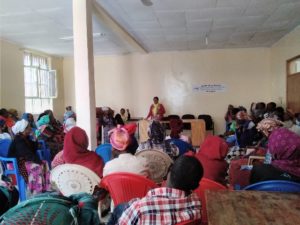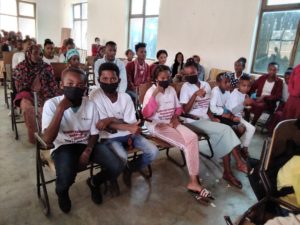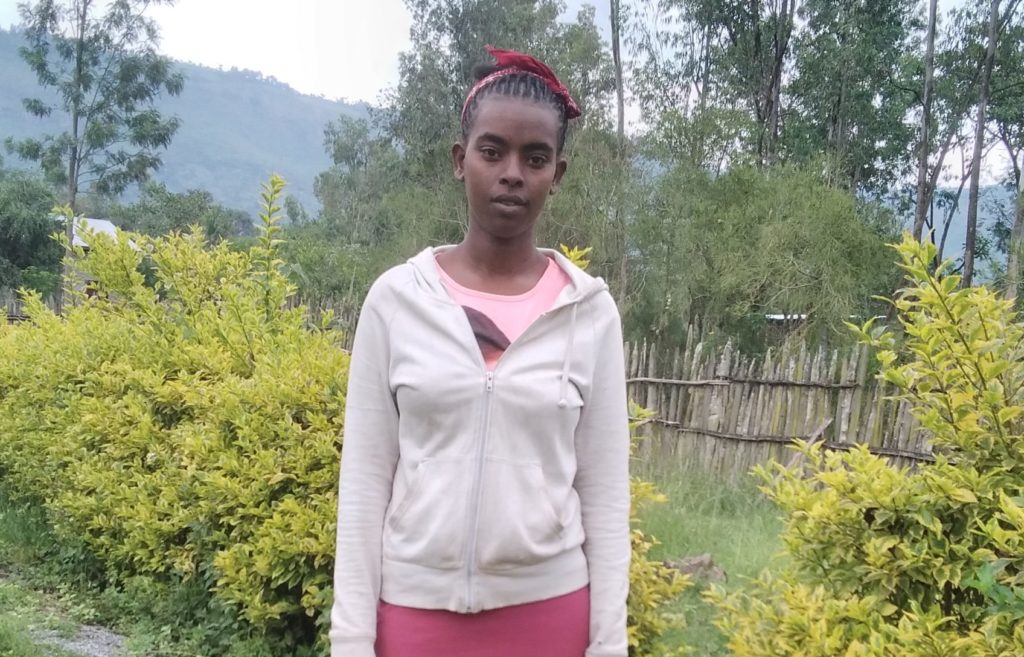Child marriage, marriage that takes place before the age of 18, creates vast vulnerabilities in young girls all over the world. However, sub-Saharan African countries have some of the highest rates of child marriage in the world. In low-income countries, families often feel that marrying off their daughters is the only way to ensure their survival. In this arrangement, the family has one less mouth to feed, while they are promised that the prospective husband will take care of their daughter.
However, the girl getting married becomes vulnerable to many dangers, like domestic violence, isolation, loss of education, and high maternal mortality and health problems. Girls whose education is cut off early end up having less opportunity to get jobs, which can make them financially dependent. Even for adult married women in high-income countries, financial dependence on their partner can keep them in an abusive situation. For women and girls living in poverty, they have even less choice in the matter. Child brides also do not have power in the marriage, which means they may not be able to insist on safe sexual practices, which leaves them open to more risks. All of these contribute to the cycle of poverty and gender inequality.
One of the biggest concerns regarding child marriage is the complications of being pregnant at a young age. Girls under the age of 15 are five times more likely to die in childbirth than women in their 20s, and also face much higher risks of pregnancy-related complications. Complications during childbirth and pregnancy are one of the leading causes of death amongst adolescent girls. The children of these brides are also vulnerable too. Children of young mothers are more likely to have nutritional deficiencies and are 60% more likely to die in the first year of life than those born to older mothers.
In Ethiopia, the practice of child marriage has begun to decrease significantly after the government set anti-early marriage policies in place. However, because child marriage is rarely done with the child’s consent, families are still engaging in the practice behind closed doors. While the government handles legal matters, Children’s HopeChest has primarily worked to counter these marriages through public education, as well as allowing CarePoint social workers to advocate for individuals.

HopeChest’s Chapa CarePoint has decided to work towards the elimination of child marriage by 2025 with the Chapa Area to End Child Marriage Campaign. They collaborate with communities, clubs, Faith-Based Organizations, Community Care Coalitions (CCCs), governmental stakeholders, nonprofits, and the Ethiopian government to help spread awareness about child marriage.
Asnake Wolamo is Aruma Local Keble Women, Children and Youth Affairs’ Child Protection Expert. “Child marriage was widespread in our district,” he said. “After Children’s HopeChest’s massive training protection to schools, community and government staff, we were able to reduce child marriage significantly. In the last 3 years, we were able to stop more than 200 cases of child marriage in our district.”
14-year-old Liya found herself in the same situation. Her parents accepted a marriage proposal and a wedding gift from a man that Liya had never met. They began preparing for a wedding without telling their daughter. “Marrying her off to someone seemed for [us] like honoring her and [a way to] make her future life better,” said Liya’s parents. When Liya deduced what was doing on, she cried and begged her parents to call off the engagement, to no avail. Liya even begged her uncle to reason with him, but he was unable to convince them to cancel the marriage.
Liya was scared and desperate. She felt that her life would be ruined if she got married to a stranger, but she also didn’t want to disappoint or embarrass her parents. Then, Liya recalled the training that the Children’s HopeChest Chapa CarePoint had provided the children in the community. The training had taught the children how to report cases of child marriage to the school.

“So one day, trembling and in fear, I went straight to our CarePoint social worker’s office and told them the story,” Liya said.
The CarePoint social worker, Mokonnen Feteka, wasted no time. “I, along with the local police officer, visited her parents and explained to them about the health and psychological impact of early marriage on a child’s life,” Feteka said boldly. “We politely informed them that early marriage is a crime, and they need to cancel the marriage or face legal charges.”
Liya’s father did not change his mind at first- he felt that he would be publicly humiliated if he canceled the marriage. However, when the CarePoint staff informed him of how early marriage would affect his daughter’s health and mental well-being, he finally conceded and canceled the engagement.
“I had never thought early marriage was causing a problem,” he said. “I regretted accepting the marriage proposal and cancelled the marriage… I am now advising people to refrain from marrying off their children before 18 years.”
Liya is still happily attending school and working hard to continue her education. “I give a big credit to Children’s HopeChest early marriage training and my CarePoint social workers for saving me from an early marriage. When I complete my school, I would like to be a teacher!”
Through educational resources, the efforts of public servants, and God’s grace, the trajectory of a young girl’s life was altered. And when Liya acheives her dream of being a teacher, she’ll educate more children in her community and provide income for her own family someday. We hope and pray to see many, many more stories like Liya’s in the future!





